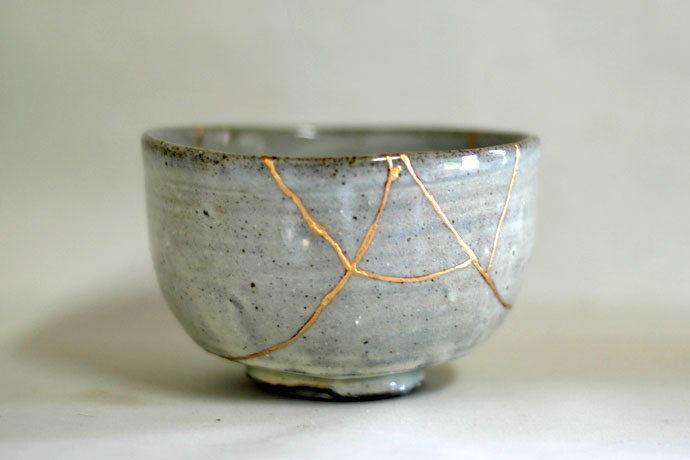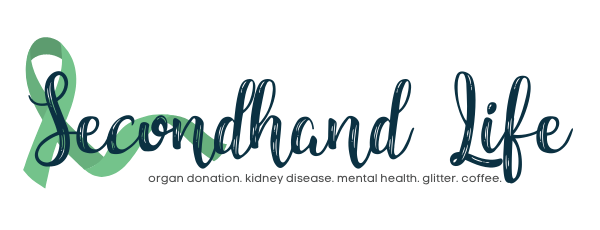
Kintsugi (金継ぎ) is a traditional Japanese art form, with the name literally meaning to patch with gold. Kintsugi transforms broken pottery into new artwork using gold lacquer to repair the cracks.
Being diagnosed with a serious chronic illness and needing an organ transplant are things you never think will happen to you, until they do. When I look back at my pre-CKD self, I find her almost unrecognisable. My life has changed forever.
While I absolutely don’t believe that “everything happens for a reason”, I do believe that difficult life experiences can be used to give you purpose and direction, if you let them.
My 24-year-old self knew exactly what she wanted to do with her life. She wanted to finish studying and find a teaching job. Then she wanted to meet a partner to settle down and eventually have children with. She knew she wanted to go back to university, when she was a bit older and wiser, for a Masters degree in psychology or social work. A lifelong chronic illness was not part of this plan.
Like so many other patients I have spoken to, I went through a period right after becoming ill where I thought my life had fallen apart. So much of what I planned for my future now seemed like it would never be able to happen, and even the things that still could were going to be so much more difficult. I felt like academic achievements I had worked towards were going to go to waste, and like my medical circumstances would frighten off a partner and make having children difficult. Resentment and anxiety can’t begin to describe how I felt. I know some of you have been there, and some of you probably still are.
“Everything will be ok in the end” is easy to say, but too simplistic. Health problems are rough, regardless of who you are or what is happening to you. They absolutely change your life and the reality is that some things will never be the same again.
Something I have found though, at least in my case, is that somehow, almost without my even realising what was happening, many aspects of my life have managed to work themselves out. Just not in quite the way I thought they would.
Yes, I might be considered “behind” my peers in terms of career development, financial stability, and general “adulting”. Maybe things would have been easier had I not taken a health-enforced “break” for several years right after university, but at the same time, I have managed to get to a place where I’m mostly happy with the way things are.
I really believe that if I hadn’t got sick, and subsequently had to reassess every aspect of my life, I would have missed so much. Being handed these circumstances in my mid-20s was hugely daunting and absolutely horrible at the time, but several years later, I’ve learned that different isn’t always worse.
When your life seemingly falls to bits around you, you have to think about what really matters within it, and look at how you’re going to start putting things back together again. Did I really want to be a teacher, get married in my 20s or have as many children as I could? Suddenly, I wasn’t so sure.
My “patched up” self doesn’t look the same as it used to. My vase was definitely smashed, many days I’m still sweeping up the dust, but over time, I’ve realised that this is ok. It turns out that what was initially a very negative thing in my life, my illness, has given me some amazing experiences, led me to some incredible people, and even provided some really valuable opportunities. Not all of these are huge, solid 24ct nuggets, some of them are more like flecks, but every single one of them matters, because they’ve made me who I am. They are the “gold” within the cracks.
There’s a crack in everything, that’s how the light gets in.
– Anthem, Leonard Cohen

1 Comment
Holly: I have read about Kintsugi as an art form, but I love how you use it to compare how we are changed by our Transplants. Thank you so much for sharing. I love how you are able to put yourself out there.
Comments are closed.